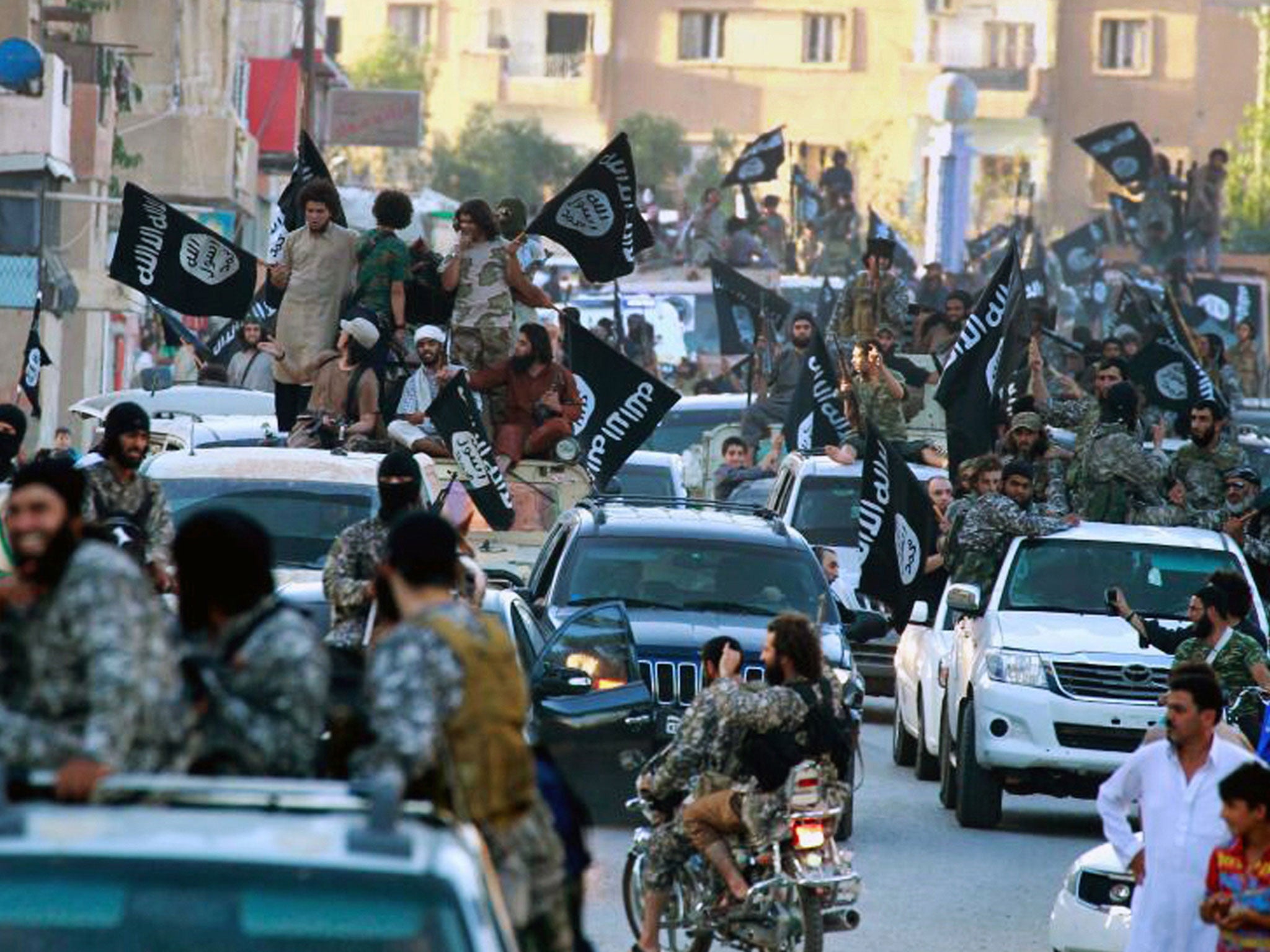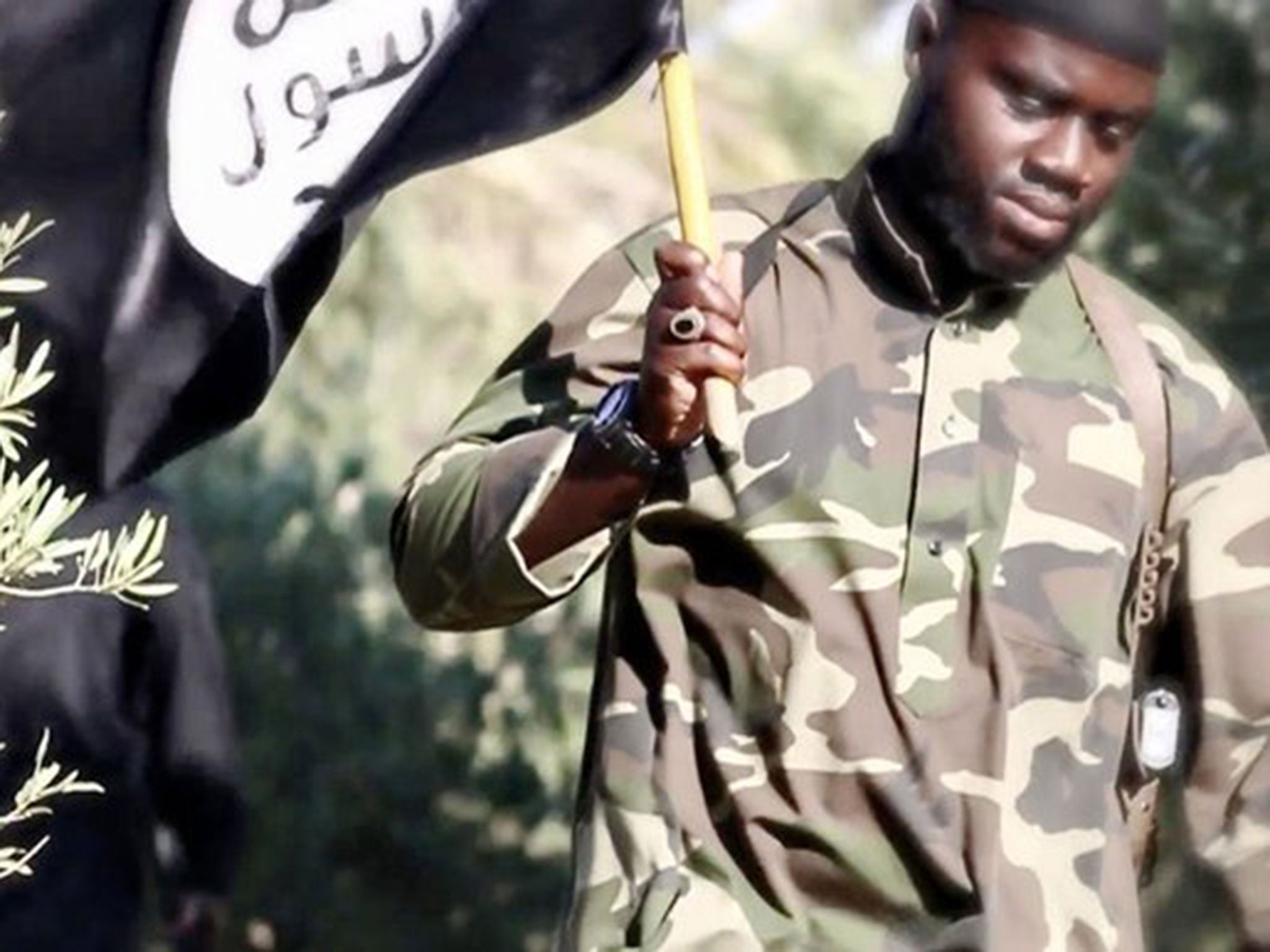Isis 'sets up office to manage relations with foreign fighters' to stop infighting and defections in Syria
There were reports of gun battles between Iraqi and Dutch militants earlier this year

Your support helps us to tell the story
From reproductive rights to climate change to Big Tech, The Independent is on the ground when the story is developing. Whether it's investigating the financials of Elon Musk's pro-Trump PAC or producing our latest documentary, 'The A Word', which shines a light on the American women fighting for reproductive rights, we know how important it is to parse out the facts from the messaging.
At such a critical moment in US history, we need reporters on the ground. Your donation allows us to keep sending journalists to speak to both sides of the story.
The Independent is trusted by Americans across the entire political spectrum. And unlike many other quality news outlets, we choose not to lock Americans out of our reporting and analysis with paywalls. We believe quality journalism should be available to everyone, paid for by those who can afford it.
Your support makes all the difference.Isis has reportedly set up an “immigrants’ office” to manage relations with foreign fighters after a dispute with Dutch militants culminated in gun battles, revenge killings and the execution of eight men.
A network of activists exposing the group’s atrocities in Syria said leaders were attempting to heal a “major fault line” between European and Arab jihadists.
Raqqa is Being Slaughtered Silently (RBSS) reported that the newly-created office will be charged with “tracking immigrants’ problems and trying to solve them quickly in order to prevent…dissent or perhaps clashes between the members”.
The situation came to a head in February, when Isis security forces arrested several Dutch members accused of planning to defect and beat one of the detainees to death.
The man’s friends then attacked officers’ headquarters starting a lengthy gun battle, RBSS said, and when an Iraqi delegate was sent to negotiate he was murdered in a revenge killing.
Isis leaders reportedly informed their superiors in Iraq, where the group originated as an al-Qaeda offshoot, and were ordered to arrest more than 70 Dutch militants and their allies, later executing eight on charges of “incitement” against the group.
RBSS said defections and dissent are growing in Raqqa amid fears of infiltration by foreign intelligence agencies, drone strikes, “frustration” and recent losses of territory and fighters in battle.
Some foreign fighters reportedly feel they are being discriminated against with pay, living conditions, rewards and treatment, as well as being sent to deadly front lines in Deir ez-Zor and elsewhere disproportionately over Iraqi Isis members.
Harry Sarfo, a German-born former jihadist who fled the group’s territories last year, said he was one of many foreign fighters attempting to escape.
In an interview with The Independent, he said: “Many have tried but they are either dead or in jail waiting for executions.
“Some of them have been abandoned by their own governments - among them is a handful of British citizens.
“I spoke to some of them who wanted to leave, many say it is impossible.”

Sarfo, a 27-year-old former postman who grew up in London, said he met fellow Isis recruits from Germany, the UK, France, Belgium, the Netherlands, Austria, Scandinavia, Spain and other countries during his time in Raqqa.
The number of foreign extremists joining the group is believed to be falling but tens of thousands are thought to remain in Syria and Iraq, including a large contingent of jihadists from Europe.
According to a count by the UK-based Syrian Observatory for Human Rights, Isis executed at least 400 of its own members in under two years, including many foreign fighters murdered “after being arrested by the organisation when they were trying to return to their countries”.
Join our commenting forum
Join thought-provoking conversations, follow other Independent readers and see their replies
Comments